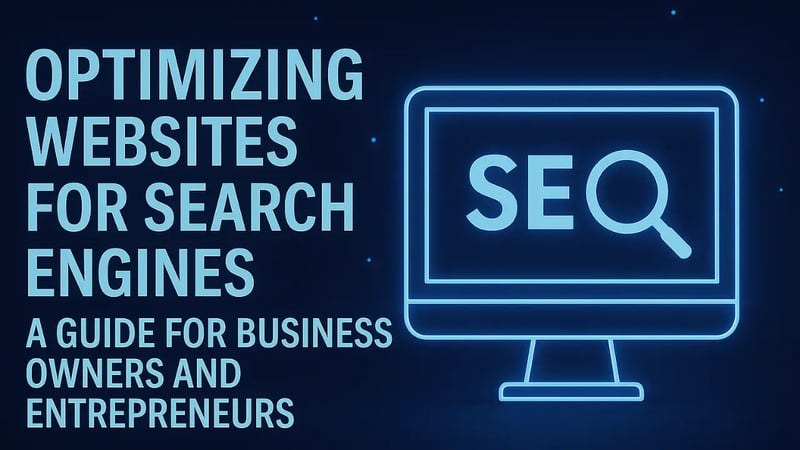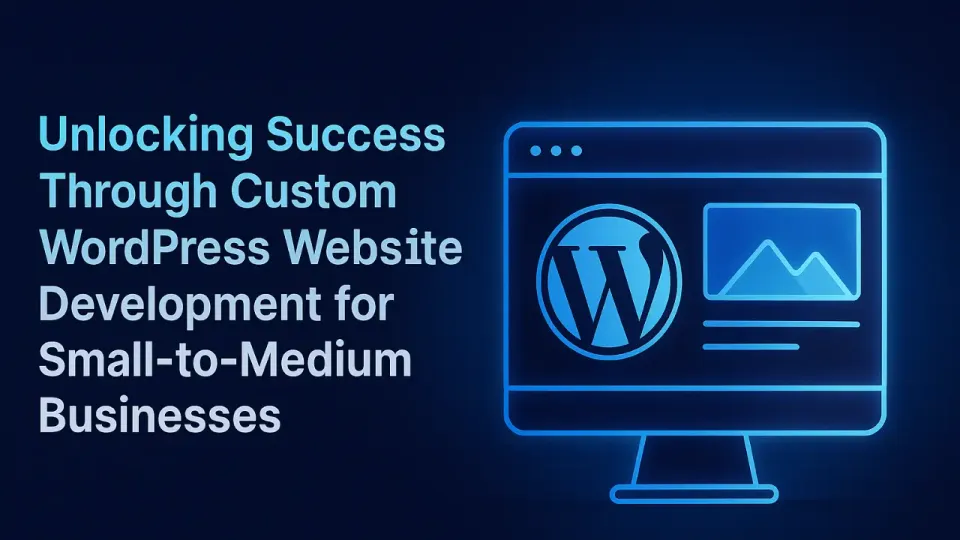Optimizing Websites for Search Engines: A Guide for Business Owners and Entrepreneurs
Learn practical steps to optimize your website for search engines, enhance visibility, and drive business growth.

As a small-to-medium business owner, the odds are that you’ve heard whispers about Search Engine Optimization (SEO) swirling around your local networking events. It can feel like a cryptic language reserved for techies, right? But let’s put this myth to rest: understanding how to optimize your website for search engines isn’t just an option—it’s essential for standing out in the digital marketplace.
Understanding SEO and Its Importance
Optimizing websites for search engines starts with knowing why SEO matters. When you think of search engines like Google, they play a crucial role in connecting you with customers who are actively searching for the products or services you offer. In fact, according to Search Engine Journal, 93% of online experiences begin with a search engine, affirming that optimizing your website should be at the forefront of your marketing strategy.
Essential SEO Basics to Get You Started
To make strides toward optimizing your website, consider these actionable steps:
- Keyword Research: Start with identifying keywords that potential customers might use to find your services. Tools such as Google Keyword Planner or SEMrush can guide you in this journey.
- On-Page SEO: This involves fine-tuning your website’s content to include keywords in titles, meta descriptions, and throughout the content. For example, if you own a bakery in Hoover, you might target keywords like "fresh baked goods Hoover".
- Mobile Optimization: With over 50% of global web traffic coming from mobile devices, it’s crucial to ensure your website is responsive and user-friendly on all platforms.
Real-World Example
Consider Sarah, who owns a local handmade soap business. By optimizing her website for search engines, she started using specific terms like "organic soap Hoover". Over six months, her traffic increased by 40%, and her revenue reflected a significant upward trend. How did she do it? Simple—she focused on the local aspect of her business while also investing time in learning SEO basics.
Leveraging Content for SEO Success
SEO isn’t just about keywords; high-quality content is king. Regularly producing blog posts or articles that answer common questions or reflect industry trends not only positions you as an authority in your field but also helps in optimizing websites for search engines. Here’s how:
- Educational Content: Providing valuable insights not only establishes credibility but also encourages shares on social media.
- Engaging Formats: Using videos or infographics in your content can significantly boost user engagement. Remember, Google values user interaction!
- Consistent Updates: Search engines appreciate fresh content. Aim for consistency—whether it’s a weekly blog or monthly newsletter—to keep your audience engaged.
Statistics to Note
According to HubSpot, businesses that blog receive 97% more links
Technical SEO: The Foundation For Success
Don’t overlook the technical side of things. Without a solid foundation, all your efforts could go to waste. Here are some technical optimization tips:
- Site Speed: Websites that load in less than 3 seconds tend to retain users better. Use tools like Google PageSpeed Insights to assess and improve your loading times.
- Secure Your Site: Google favors HTTPS sites. Ensure your website is secure to gain trust from users and search engines alike.
- XML Sitemap: This is crucial for search engines to crawl and index your website efficiently. It helps in organizing your pages effectively.
Expanding Your Reach Through Analytics
Monitoring your progress is just as important as setting initial goals. Tools like Google Analytics can provide insights into how visitors interact with your site. For instance, you can track which pages are getting the most traffic and adjust your content strategy accordingly.
Anecdote to Illustrate
Picture this: John, a retail entrepreneur, utilized Google Analytics to discover that customers flocked to his seasonal promotions but rarely visited his contact page. By making the contact page more accessible and pushing promotions on social media, he significantly increased customer inquiries. This minimal adjustment, rooted in analytics, showcased the importance of data in optimizing websites for search engines.
Conclusion
Optimizing websites for search engines is a multifaceted strategy that can propel your business toward greater visibility and success. By understanding SEO basics, producing quality content, paying attention to technical details, and using analytics to guide your decisions, you’re not just throwing spaghetti at the wall—you’re crafting a robust plan that responds to the needs of your target audience. Take these insights, apply them, and watch your business grow!
"Joining this community has been a game-changer for staying updated on the latest trends & events!" - John B.





